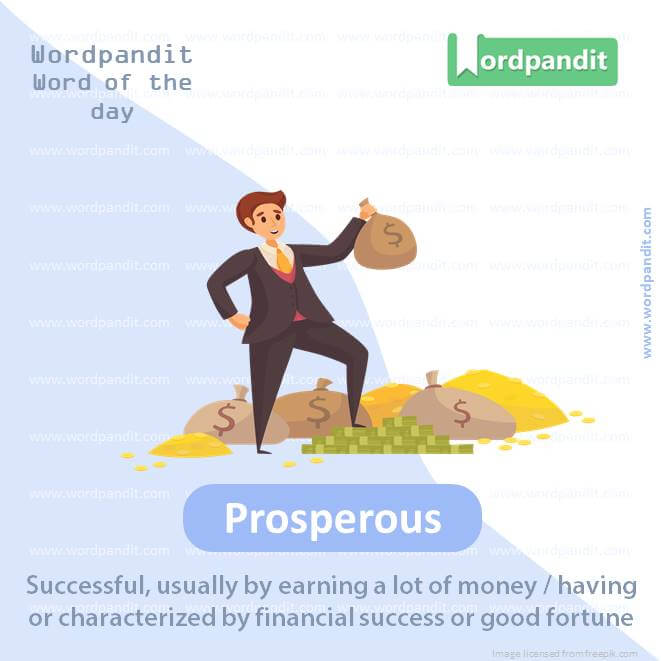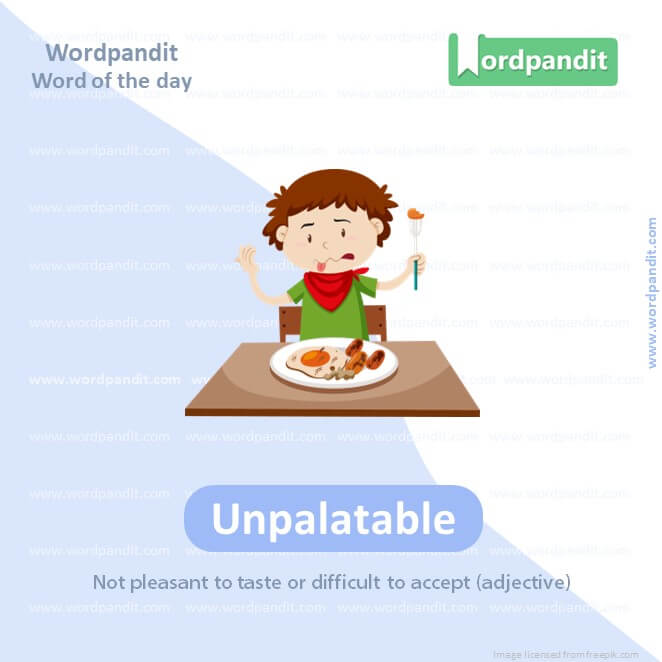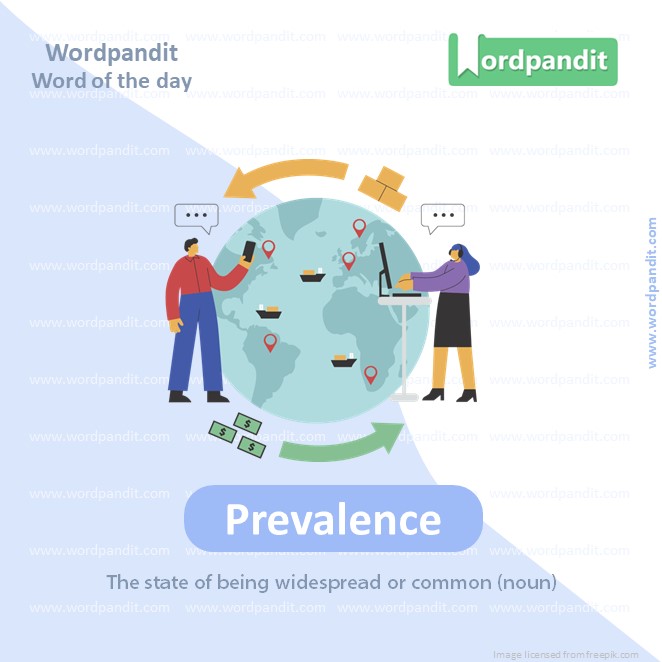Daily Vocabulary Words: List of Daily Used Words in Leading International Newspapers
Hi there. Welcome to this special section @ Wordpandit.
Our endeavour here is very simple: to highlight important daily vocabulary words, which you would come across in leading newspapers in the country. We have included the following newspapers in our selection:
• The New York Times
• The Washington Post
• Scientific American
• BBC
• The Guardian
• Psychology Today
• Wall Street Journal
• The Economist
We are putting in extensive work for developing your vocabulary. All you have got to do is be regular with this section and check out this post on a daily basis. This is your repository of words that are commonly used and essentially, we are posting a list of daily used words. Hence, this has significant practical application as it teaches you words that are used commonly in leading publications mentioned above.
Visit the website daily to learn words from leading international newspapers.

WORD-1: Congregate
CONTEXT: College-educated voters have tended to congregate in big cities and lead very different lives from voters without a college degree.
SOURCE: New York Times
EXPLANATORY PARAGRAPH: Imagine you and your friends decide to meet at the park to play. When everyone comes to the same place at the same time to be together, it’s like what “congregate” means. It’s when people or animals gather together in one spot because they want to be with each other or do something together.
MEANING: To come together in a group or crowd (verb).
PRONUNCIATION: KON-grih-gate
SYNONYMS: Assemble, Gather, Meet, Convene, Cluster, Accumulate
USAGE EXAMPLES:
1. The students congregate in the cafeteria every morning before class.
2. Birds congregate near the lake during the migration season.
3. People congregate in the town square for the annual festival.
4. Fans congregate outside the stadium to support their team.

WORD-2: Cosmopolitan
CONTEXT: The former are cosmopolitan progressive, while the latter are traditionalist — faith, family, flag.
SOURCE: New York Times
EXPLANATORY PARAGRAPH: Think of a city where people from all over the world come to live, bringing their own special foods, music, and ways of dressing. This city is like a big party where everyone is invited, no matter where they’re from. That’s what “cosmopolitan” means – it’s a place or a feeling where everyone is welcome and lots of different cultures mix together.
MEANING: Describes a place or person that is worldly and familiar with different cultures (adjective).
PRONUNCIATION: Koz-mo-PAW-li-tan
SYNONYMS: Worldly, Sophisticated, Multicultural, International, Diverse, Global
USAGE EXAMPLES:
1. New York City is known for its cosmopolitan atmosphere.
2. She has a cosmopolitan outlook on life thanks to her travels.
3. The cosmopolitan cuisine includes dishes from all over the world.
4. Attending a cosmopolitan university can broaden your horizons.
WORD-3: Misrecognition
CONTEXT: An analysis of more than 65,000 people across 36 countries by the Dutch scholar Jochem van Noord found that people who do not belong to the new elite are united not only by economic insecurity but also by “feelings of misrecognition, that is, the extent to which people have the feeling that they do not play a meaningful role in society, that they possess a (stigmatized) identity that is looked down upon.”
SOURCE: New York Times
EXPLANATORY PARAGRAPH: Imagine calling your friend by the wrong name because you thought they were someone else. That mistake is like “misrecognition.” It’s when you think something or someone is one thing, but it’s actually something else. It’s a mix-up!
MEANING: The act of incorrectly identifying or recognizing someone or something (noun).
PRONUNCIATION: Mis-rek-ug-NISH-un
SYNONYMS: Misidentification, Mistake, Error, Misunderstanding, Confusion, Misinterpretation
USAGE EXAMPLES:
1. The misrecognition of the suspect caused a lot of confusion.
2. She experienced misrecognition when she mistook the polite gesture for sarcasm.
3. Misrecognition of the symptoms led to a delayed diagnosis.
4. His artwork suffered from misrecognition during his lifetime.

WORD-4: Prosperous
CONTEXT: In the last two decades it sometimes feels as if an enormous social vacuum cleaner has sucked up status from manual occupations, even skilled ones, and reallocated it to the middling and higher cognitive professions and the prosperous metropolitan centers and university towns.”
SOURCE: New York Times
EXPLANATORY PARAGRAPH: Think about a garden full of big, colorful flowers and juicy fruits. This garden is doing really well because it has everything it needs – like sunshine and water. When we say something is “prosperous,” it’s like that garden. It means being successful, having lots of good things, and not having to worry about not having enough.
MEANING: Successful, usually by earning a lot of money / having or characterized by financial success or good fortune.
PRONUNCIATION: PROS-per-us
SYNONYMS: Wealthy, Successful, Flourishing, Thriving, Affluent, Well-off
USAGE EXAMPLES:
1. He grew up in a prosperous family.
2. The prosperous era led to the construction of many new buildings.
3. Her business became very prosperous over the years.
4. They live in a prosperous neighborhood.
WORD-5: Persuasively
CONTEXT: the political scientist Zach Goldberg argued persuasively that the educated class would continue to remake the Democratic Party in its own image.
SOURCE: New York Times
EXPLANATORY PARAGRAPH: Imagine you really want a cookie before dinner, and you try to convince your mom by being really sweet and giving her good reasons why you should have one. If she gives you the cookie because your reasons are so good, that means you talked to her “persuasively.” It’s when you talk or act in a way that makes others want to agree with you or do what you suggest.
MEANING: In a way that convinces someone to do or believe something through reasoning or argument (adverb).
PRONUNCIATION: Per-SWAY-siv-lee
SYNONYMS: Convincingly, Effectively, Compellingly, Eloquently, Cogently, Influentially
USAGE EXAMPLES:
1. She argued persuasively for the need for change.
2. He spoke persuasively about the benefits of exercise.
3. The advertisement was designed to persuasively sell the product.
4. Her persuasively written essay won the competition.
WORD-6: Strenuously
CONTEXT: it’s found in people like Senator John Fetterman of Pennsylvania, who works strenuously to reduce social distance between Democrats and the working class.
SOURCE: New York Times
EXPLANATORY PARAGRAPH: Imagine trying to push a really heavy toy car up a hill, and you’re using all your strength to do it. You’re breathing hard and really working your muscles. That’s what “strenuously” means. It’s when you’re putting a lot of effort and energy into doing something because it’s not easy.
MEANING: With great effort or energy; vigorously (adverb).
PRONUNCIATION: STREN-yoo-us-lee
SYNONYMS: Vigorously, Hard, Forcefully, Intensely, Energetically, Powerfully
USAGE EXAMPLES:
1. He strenuously objected to the unfair rules.
2. She worked strenuously to meet the deadline.
3. The athletes trained strenuously for the competition.
4. They strenuously defended their point of view during the debate.
WORD-7: Persisting
CONTEXT: Some influential experts go further, insisting that Kyiv will suffer only more death and destruction by persisting and should seek a political settlement with Moscow — even if it requires sacrificing territory.
SOURCE: New York Times
EXPLANATORY PARAGRAPH: Think about trying to build a tower with blocks, and it keeps falling down. But you don’t give up; you keep trying again and again until you get it right. That’s “persisting.” It means to keep doing something or trying even when it’s hard or takes a long time.
MEANING: Continuing firmly or obstinately in an action in spite of difficulty (verb).
PRONUNCIATION: Per-SIST-ing
SYNONYMS: Continuing, Persevering, Enduring, Maintaining, Insisting, Carrying on
USAGE EXAMPLES:
1. Despite the rain, they are persisting with the outdoor event.
2. She is persisting in her efforts to learn the piano.
3. His interest in the subject is persisting over the years.
4. Persisting in your goals is key to success.

WORD-8: Unpalatable
CONTEXT: the Ukrainian land it now holds — a scenario Ukrainians would find more than unpalatable — Moscow’s position will be worse.
SOURCE: New York Times
EXPLANATORY PARAGRAPH: Imagine biting into a piece of candy, expecting it to be sweet, but instead, it tastes really bad. That taste you don’t like is what “unpalatable” means. It’s a word we use when something doesn’t taste good or when we don’t like something because it’s not nice or pleasant.
MEANING: Not pleasant to taste or difficult to accept (adjective).
PRONUNCIATION: Un-PAL-a-tuh-bul
SYNONYMS: Distasteful, Unpleasant, Disagreeable, Unsavory, Inedible, Unappealing
USAGE EXAMPLES:
1. The medicine is effective but has an unpalatable taste.
2. He delivered the unpalatable truth in a gentle manner.
3. The unpalatable conditions at the camp were criticized.
4. Some find the idea of change unpalatable.

WORD-9: Prevalence
CONTEXT: The prevalence of this mind-set became increasingly palpable over the course of four trips I have taken to Ukraine since the invasion; no visitor to Ukraine will fail to be struck by its many daily manifestations.
SOURCE: New York Times
EXPLANATORY PARAGRAPH: Imagine if in your class, almost everyone has a blue backpack. The blue backpacks are the most common kind in your class. “Prevalence” is a word that means how common or widespread something is, like the blue backpacks in your class. It’s when you see something happening a lot or many people have it or do it.
MEANING: The state of being widespread or common (noun).
PRONUNCIATION: PREV-uh-lence
SYNONYMS: Commonness, Ubiquity, Widespread, Frequency, Predominance, Pervasiveness
USAGE EXAMPLES:
1. The prevalence of smartphones has increased dramatically.
2. Researchers study the prevalence of the disease in different regions.
3. The survey highlighted the prevalence of this opinion.
4. The prevalence of fast food restaurants contributes to unhealthy diets.
WORD-10: Enchanting
CONTEXT: The Radio Ceylon Station an hour in advance so as to enjoy an enchanting programme.
SOURCE: New York Times
EXPLANATORY PARAGRAPH: Think about a place so beautiful and magical, like a castle in a fairy tale, that it makes you feel really happy just being there. That’s what “enchanting” means – something so lovely and magical that it seems like a dream.
MEANING: Delightfully charming or attractive, giving a sense of magical beauty (adjective).
PRONUNCIATION: en-CHANT-ing
SYNONYMS: captivating, charming, delightful, magical, bewitching, enthralling, spellbinding
USAGE EXAMPLES:
1. The enchanting music captivated everyone in the room.
2. They visited an enchanting little village on their vacation.
3. The book’s illustrations were enchanting, drawing readers into a magical world.
4. Her enchanting smile won the hearts of all who met her.
vocabulary cards
In the realm of language learning, an individual’s arsenal is incomplete without the essential tool of ‘vocabulary cards.’ Vocabulary cards, also known as flashcards, are a potent method to imprint new words, phrases and their meanings into our memory. They have been used for centuries for their effective learning approach and cognitive retention benefits.
Vocabulary cards are typically designed with a term on one side, and its meaning or translation on the other. This learning tool engages our brain’s active recall, a vital process in long-term memory imbibing. However, these vocabulary cards should not just be seen as standalone pieces of paper; they are keys to unlocking the treasuries of new languages.
To harness the best results from vocabulary cards, one must follow a planned method. Firstly, the words and phrases should be relevant to the learner’s requirement. Niche words about the user’s profession or daily life activities are particularly profitable choices. Secondly, incorporate these flashcards into regular study routine to ensure consistent revising. It is suggested to do short, multiple study sessions throughout the day, rather than one long session.
Another significant factor in learning vocabulary cards is the Leitner System, an age-old method of spacing the revision of cards based on the learner’s proficiency. The cards that are difficult to remember should be reviewed more frequently than the ones that are easier.
Utilizing vocabulary cards provides a hands-on approach, reinforcing knowledge with each use. It helps learners to interact with the language, promoting better understanding and long-term retention. As such, vocabulary cards are far more than simple learning aids; they provide a comprehensive system for enhancing vocabulary, setting learners on the fast track to language proficiency.
In conclusion, vocabulary cards’ value should not be underrated. Explore these smart flashcards and begin your journey towards linguistic mastery consistently and effectively.







